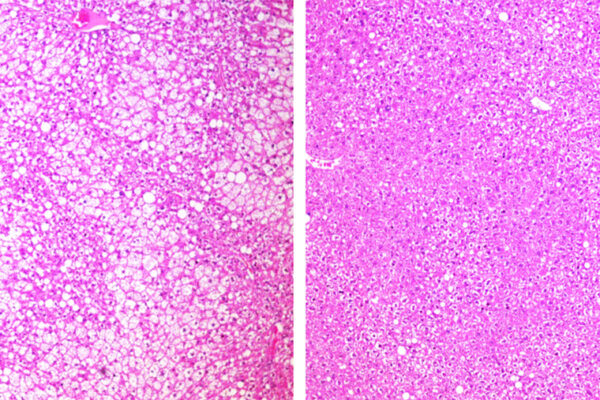Drug mimics beneficial effects of fasting in mice
An investigational cancer drug that starves tumors of their energy supply also shows evidence of improving whole body metabolism, according to a new study in mice from Washington University School of Medicine.
Enhanced therapeutic foods improve cognition in malnourished children
A nutritional supplement popular in the U.S. and added to some types of yogurt, milk and infant formula can significantly improve cognition in severely malnourished children, according to a study led by researchers at Washington University School of Medicine.
Warning labels on soda bottles, restaurant menus could reduce obesity, save health-care costs
Warning labels on sugar-sweetened beverages and menu labeling requirements for chain restaurants could be a cost-effective policy leverage to prevent weight gain and reduce medical expenses, but their impact is expected to fade over time, finds a new study from the Brown School.
More sleep leads to better grades and well-being
Research from Tim Bono, lecturer in psychological and brain sciences in Arts & Sciences, finds that students who get a good night’s sleep night in and night out earn higher marks and have greater well-being.
Gordon receives Balzan Prize
Jeffrey I. Gordon, MD, at Washington University School of Medicine, is a recipient of this year’s Balzan Prize for his role in founding the field of human gut microbiome research and revolutionizing the understanding of gut microbes and their roles in human health and disease.
Research to explore how genes, other factors affect cardiometabolic disease risk
With an $8.8 million grant from the National Institutes of Health (NIH), researchers at Washington University School of Medicine will study how an individual’s risks of cardiometabolic diseases are influenced by the interaction of specific genes with demographic and lifestyle factors.
‘Good cholesterol’ may protect liver
A new study from the School of Medicine shows that a type of “good cholesterol” called HDL3, when produced in the intestine, protects the liver from inflammation and injury.
Promoting physical activity is key to achieving U.N. Sustainable Development Goals
New evidence supports the integration of physical activity promotion strategies as a key part of the action plan for achieving the United Nations Sustainable Development Goals, finds a new study led by Brown School researchers.
New snack foods nurture healthy gut microbiome
Researchers at the School of Medicine have identified ingredients for snack food prototypes that have been formulated to deliberately change the gut microbiome in ways that can be linked to health.
Lang named to national child health advisory council
Catherine Lang, professor of physical therapy at the School of Medicine, has been appointed to serve on a national child health council for the Eunice Kennedy Schriver National Institute of Child Health and Human Development of the National Institutes of Health (NIH).
Older Stories









